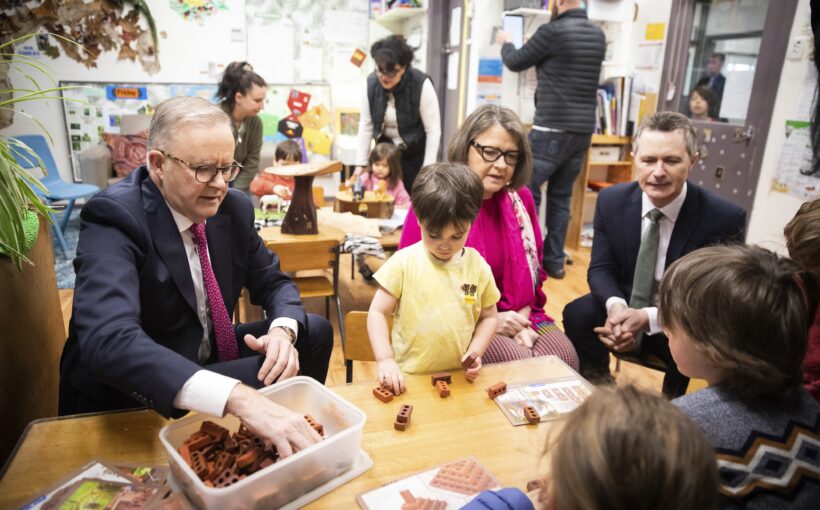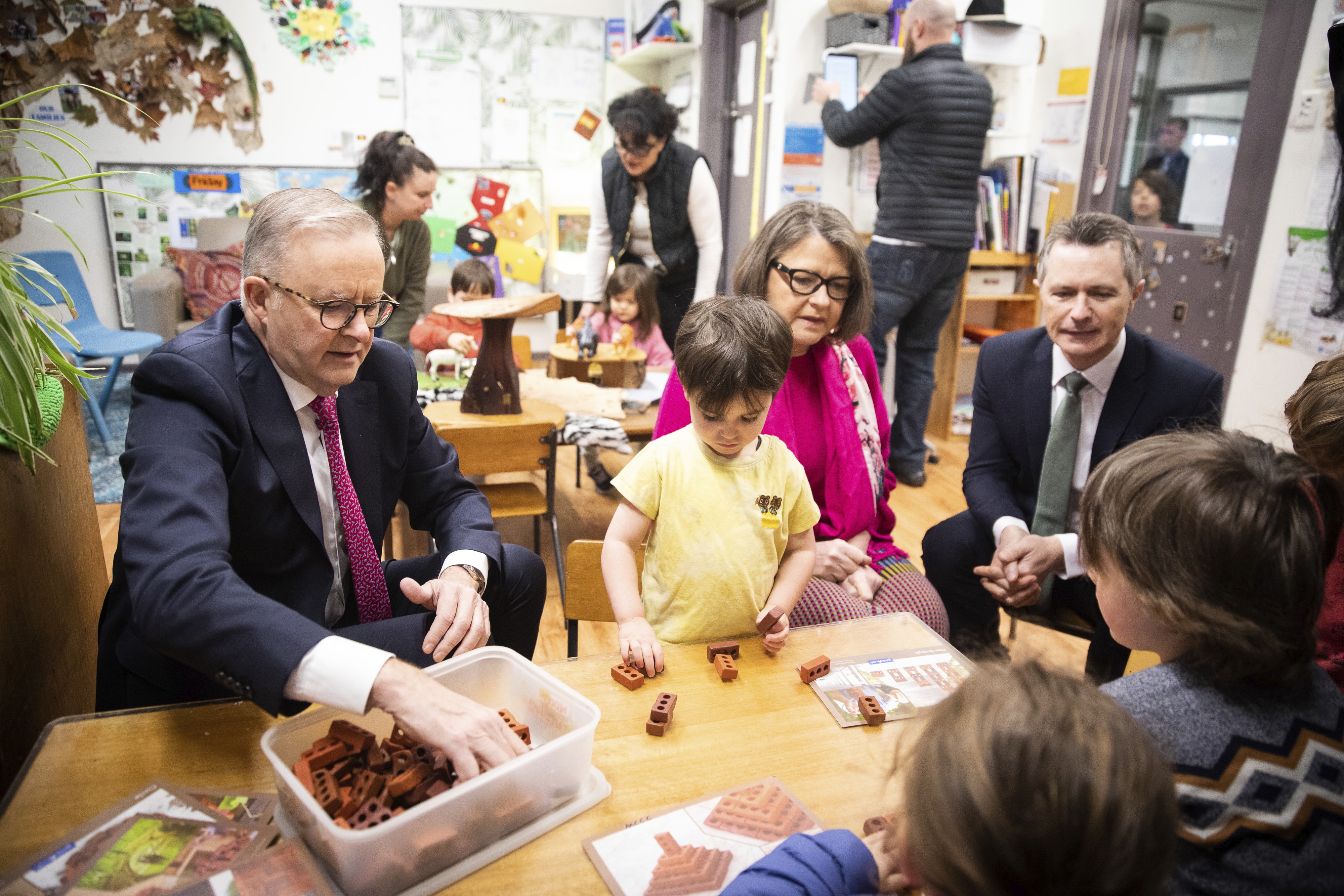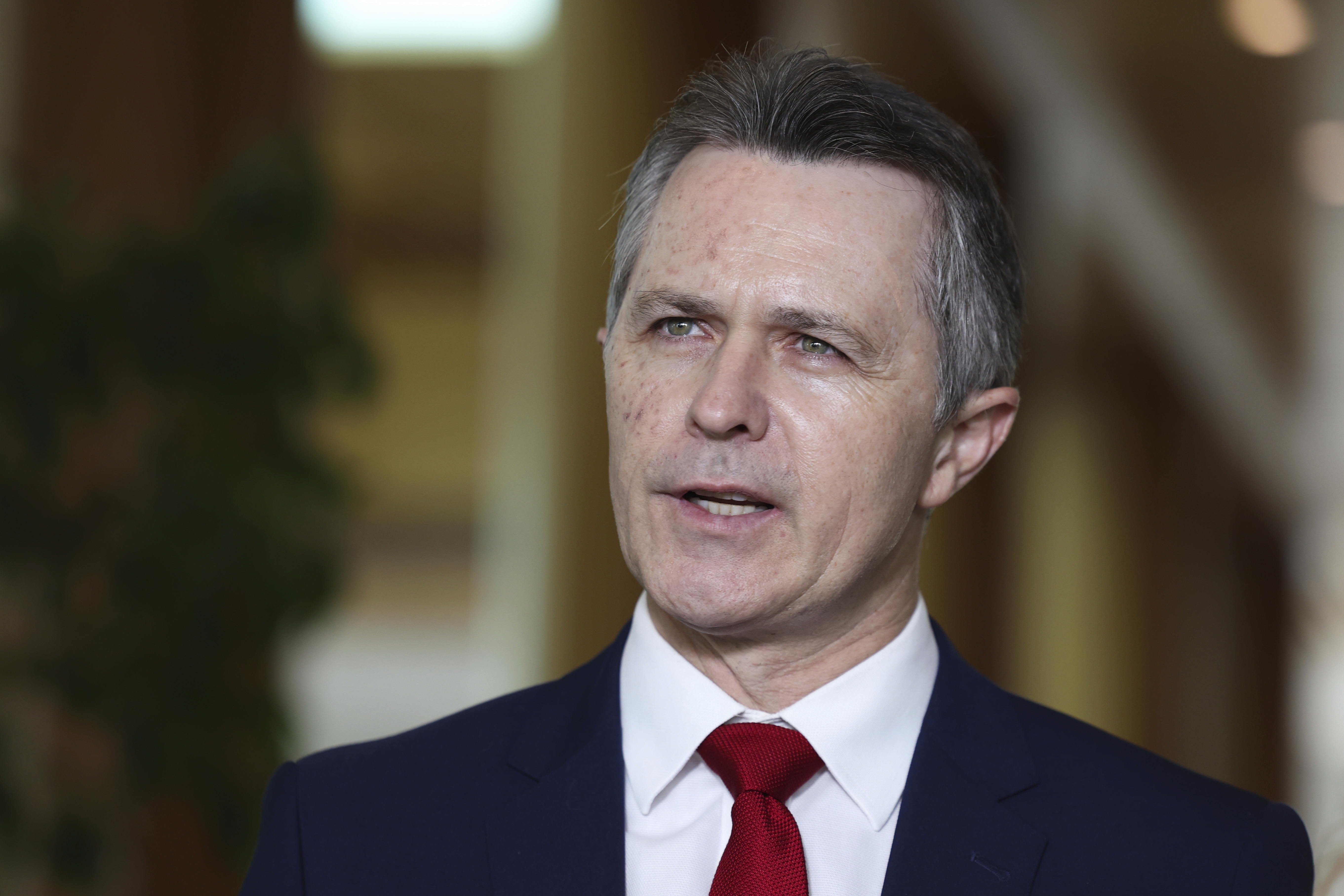Families will get three days a week of subsidised childcare and the activity test for early education support will be scrapped if the federal government is re-elected next year.
In one of his first major election promises, Prime Minister Anthony Albanese announced the policy, which is expected to cost $427 million over five years, during a speech in Brisbane today.
It will provide three days of subsidised childcare each week to families earning up to $530,000 a year, as recommended by a Productivity Commission report in September.
READ MORE: Fifty million reasons for people in one state to check their lotto tickets
The government will also turf the activity test, which links a family's level of support to how much they are working.
"These are the building blocks of a world-class universal early education system: getting fees down for families, getting wages up for workers, getting more places for children, more centres and services in our regions and suburbs and a new three-day guarantee in early education," Albanese said.
"These are the next steps in a nation-defining journey … it can only be done with real change in the way we, as a society, think about early education and care, not just as a boost for the economy, but also as a life-changing opportunity for children."
Albanese also announced a new $1 billion fund to build and expand early education centres.
"This is the single biggest investment by an Australian government ever in new childcare services, starting with building or expanding over 160 early education and care centres," he said.
The Coalition appears set to oppose the policy, with Nationals Senator Matt Canavan saying he "can't support it in this form".
"This seems to be just a subsidy for rich families because you can already obviously get childcare funding if you work," he told Today.
"This will be for those who don't have to work."
READ MORE: 'Bottomless pit': Charities continue to see increased demand for food relief
The government and social advocates say, though, that the activity test has locked low-income families out of accessing cheaper childcare.
"There's some families, some very, very poor families where parents might not be working where the child, through no fault of their own, can't get access to that subsidy even though parents on higher incomes can," Education Minister Jason Clare told Today.
"And they're sometimes the children that don't see a book until they start kindergarten.
"They're the children who inevitably start school behind of the rest of the class.
"And so by making this change we're going to help to make sure that every child gets the skills that they need to start school ready to learn.
"That doesn't happen at the moment. This change will help there."
Currently, the level of subsidy a family receives depends on their income, number of children, the age of those children, and how much the parents work – the latter of which will be removed under the government's proposal.
The policy will come into effect on January 1, 2026, if Labor wins another term at next year's election.
DOWNLOAD THE 9NEWS APP: Stay across all the latest in breaking news, sport, politics and the weather via our news app and get notifications sent straight to your smartphone. Available on the Apple App Store and Google Play.





